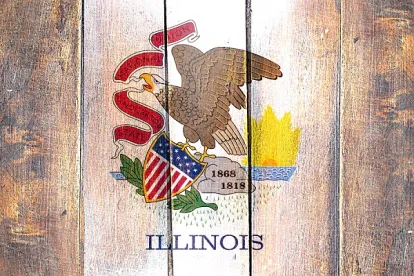When a business is sued in a proposed class action and there is only a small amount at stake on the named plaintiff’s claim, often one of the first thoughts that comes to mind is: can’t we just pay the full value of the named plaintiff’s claim and make the case go away? As you might imagine, this is a tactic that has been attempted for decades, since the advent of modern class actions. It’s largely been unsuccessful, but the Illinois Supreme Court clarified last week that defendants can defeat a class action in that state’s courts by “tendering” full relief. According to the Illinois Supreme Court, this requires paying the full amount potentially owed into the court’s registry, agreeing to pay whatever the court awards for reasonable attorney’s fees and costs (if applicable), and effectively admitting liability. And this only works if a motion for class certification has not been filed before the amount is tendered. If there is injunctive or other non-monetary relief sought, the defendant may have to agree to that relief unconditionally as well.
In Joiner v. SVM Management, LLC, Docket No. 124671, 2020 IL 124671 (Ill. Feb. 21, 2020), the Illinois Supreme Court revisited its prior precedent on this issue in light of the U.S. Supreme Court’s decision in Campbell-Ewald Co. v. Gomez, 136 S. Ct. 663 (2016) (blog post). The Illinois Supreme Court had previously found that a tender of full relief prior to a motion for class certification being filed would moot a putative class action. In Gomez, the U.S. Supreme Court held that an offer of judgment under Federal Rule of Civil Procedure 68 that was not accepted did not render a class action moot because an unaccepted offer was a nullity under basic principles of contract law. The Court suggested that depositing the funds into an account might lead to a different result, but federal courts of appeals addressing that tactic have thus far rejected that approach, as far as I’m aware.
The Illinois Supreme Court distinguished Gomez on the grounds that a tender is actually forking over the money, not just offering it, the Illinois Code of Civil Procedure expressly provides for such a tender, and such a tender admits liability and is unconditional. The court explained:
When a defendant tenders the relief sought by a named plaintiff prior to a motion for class certification, it does not force the plaintiff to accept a settlement against her will, as plaintiffs argue, but admits liability and satisfies plaintiff’s demand. A live controversy therefore no longer exists, and the court must dismiss the case if no other plaintiff steps into the named plaintiff’s shoes to represent the class.
In Joiner, the tender was made by the defendant’s attorney sending a cashier’s check to the plaintiff’s attorney, but the court explained that future tenders should be made by paying the funds to the court:
We hold that future tenders made to satisfy a demand if made after filing of suit, should be made to the court. If the tender fully satisfies the plaintiffs’ demand absent costs and attorney fees, the court could then hold a hearing on costs and, if applicable, attorney fees before dismissing the case contingent upon payment of costs and fees.
Will defendants decline to remove cases to federal court in Illinois where this strategy is available? Keep in mind that Plaintiffs still appear to be able to defeat this strategy under the Joiner decision by filing an appropriate motion for class certification simultaneously with the complaint. And defendants may need to consider whether there are any potential collateral consequences of admitting liability by making a tender.
The issue still remains open at the Supreme Court level in the federal system, so stay tuned.



 />i
/>i

